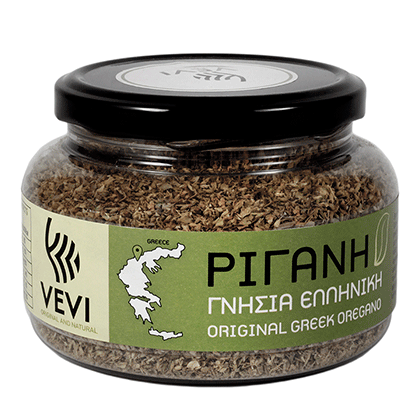
Oregano is a wonderful perennial culinary and medicinal herb. It has long been recognized as one of the "functional foods" for its nutritional, antioxidants and disease preventing properties. The herb, whose name means "delight of the mountains" in Greek, is native to the Mediterranean region.
Botanically, it belongs to the mint (Lamiaceae) family, in the genus; Origanum, and is known scientifically as Origanum vulgare. The plant is a small shrub, growing up to 75 cm in height with multi-branched stems covered with small grayish-green oval leaves and small white or pink flowers.Oregano is widely popular in the Greek and Italian cuisines. Its leaves have a distinctive aromatic, warm, and slightly bitter taste. Their biting intensity varies; for instance, a good-quality oregano is so strong that it almost numbs the tongue.There are many cultivars of oregano cultivated across Europe. However, the influences of climate, season, and soil have a greater influence on the composition of the essential oils than the species variations. Origanum heracleoticum is another Greek variety having a distinctive sharp scent, and flavor.
Health Benefits of Oregano
-
Oregano contains an impressive list of plant derived chemical compounds that are known to have disease preventing and health promoting properties.
-
The herb parts contain no cholesterol; however, are a rich source of dietary fiber, which helps to control blood cholesterol levels.
-
Oregano contains much health benefiting essential oils such as carvacrol, thymol, limonene, pinene, ocimene, and caryophyllene. Its leaves and the flowering stem has antiseptic, antispasmodic, carminative, cholagogues (empties gallbladder collection of bile juice), diaphoretic (sweat production), expectorant, stimulant, and mildly tonic properties. Its decoction is taken by mouth for the treatment of colds, influenza, mild fevers, indigestion, stomach upsets, and painful menstruation conditions.
-
Thymol is also been found to have antibacterial, antifungal activities.
-
The herb is rich in polyphenolic flavonoid antioxidants (vitamin A, carotenes, lutein, zeaxanthin, and cryptoxanthin) and has been rated as one of the plant sources with highest antioxidant activities. These compounds help act as protective scavengers against oxygen-derived free radicals and reactive oxygen species (ROS) that play a role in aging and various disease processes.
-
The active principles in the herb may improve gut motility, besides, increasing the digestion power by facilitating copious secretion of gastrointestinal juices.
-
This marvelous herb is an excellent source of minerals like potassium, calcium, manganese, iron, and magnesium. Potassium is an important component of cell and body fluids that helps control heart rate and blood pressure caused by high sodium. The human body utilizes manganese as co-factors for the antioxidant enzyme, superoxide dismutase. Iron helps prevent anemia. Magnesium and calcium are essential minerals for bone metabolism.
-
Also, fresh herb is an excellent source of antioxidant vitamin, vitamin-C. Vitamin-C helps the human body develop resistance against infectious agents and scavenge harmful, pro-inflammatory free radicals.
Oregano is a proven super "functional food." This herb is one of the foundation bases of healthy Mediterranean diet in addition to olive oil, fish, and lots of greens, herbs, and vegetables. It has an excellent nutritional profile.

